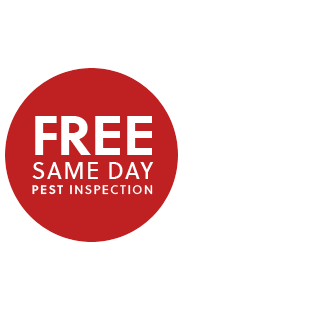Don’t Fall Asleep on Stinging Insects This Fall
Just because summer is over doesn’t mean the threat from stinging insects is over.
Stinging insects – including yellowjackets, carpenter bees, hornets, and wasps – remain active in and around your home. They can be found around trees, bushes, building corners, overhangs, gutters, and garbage dumpsters, and under patios and decks.
Why the reason for their fall activity? Stinging insects – bald-faced hornets, wasps, and yellowjackets – can be aggressive because they are protecting the nests and hives they spent all summer building.
Yellowjackets, sometimes called “meat bees,” are the most troublesome stinging insect pest. Their top billing on the annoyance chart comes from their frequent incursion into areas where people live and play.
Yellowjackets nest in and around homes because they are attracted to many of the foods we enjoy eating outdoors. Depending on the species of yellowjacket, they will build nests in wall voids, attics, crawlspaces, other enclosed cavities, or underground – for example, in holes dug by burrowing rodents.
Yellowjackets’ main food source is other insects, but they will forage aggressively for foods high in sugar content that are often found on picnic tables or in garbage cans – beer, soda, fruit, and other items.
The Clark Man recommends the following tips to prevent stinging insects from bothering your family:
- Remove food and water sources from your yard; trim bushes and trees where stinging insects like to nest
- Inspect the exterior of your home or office, looking closely at the eaves, and seal cracks and crevices to keep stinging insects out
- Properly seal all garbage cans – stinging insects are attracted to the sugars and residues in leftover food
- Keep food covered when you are putting out your summer spread
- When gardening, wear neutral earth tones – nothing bright or floral – and avoid wearing scented creams or perfume
- If a bee or wasp lands on you, move calmly – jerky reactions can boost the likelihood of getting you stung
- At that backyard cookout, keep an eye on your drink, because stinging insects are attracted to soft drinks and beer. A mouthful of bee or wasp can put a damper on any party!
The Clark Man recommends that if you’re not sure whether a stinging insect, or any pest, is harmful, to please call or text us. We also strongly encourage people not to try to move or destroy stinging insect nests on their own, as this might cause serious harm to you and your family. Leave that task to a trained professional.
If you have questions on stinging insects, call or text (800) WE-NEED-YOU (936-3339) or drop me an email at clarkcares@clarkpest.com.
Until next time, I’m the Clark Man, and thanks for helping me keep unwanted pests out of your home.


